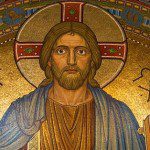Here is my sermon from yesterday. Enjoy!
We'll be in John chapter 20 this morning. Some of you were out of town last week, and sadly missed the end of Mark. I commend to you the podcast. Mark leaves us abruptly at the end of his gospel. The women, having heard the news that Jesus is alive, But before seeing him flee from the tomb in fear. Mark wants us to stand close to them, before they see Jesus, because that is where we are. We have heard the news, listened to all the witnesses, but have not seen The Lord. Is what we have been given enough? That is the question for you to answer this morning.
So, John, 20,
19 On the evening of that day,
That day is Sunday, the day of the resurrection. Early that morning the women had gone to the tomb, discovered the stone rolled away, talked with two angels, and after that, Jesus. Mary Magdalen had broken from the group, panicked when she saw the stone rolled away, run back to tell Peter and John, gone back herself, mistaken Jesus for the gardener, and finally recognized him. Peter and John, after seeing the empty tomb, Left without understanding. Then the women had run to tell the disciples what they had seen, that Jesus is alive, they had spoken with him, and they, the disciples had not believed them.
I won't belabor the foolishness of their unbelief. We all have people we have a hard time believing, or ideas. I might liken the unbelief, at this point, to my attitude towards Matt watching Big Foot Sightings. I just don't believe any of the “evidence”, I am bemused and condescending towards him whenever he has it on. That is the attitude, I think, of the disciples. We love you ladies, and we totally understand your desperation, but no, we're not going go look at the tomb right now and no we don't think Jesus is really alive. Yes, I'm sure you saw something, but the risen Christ? No. I don't want to get into the mire of big foot sightings, I'm talking about the attitude of the disciples here. They discount the testimony of the women because they have already decided not to believe.
the first day of the week,
The first day of the week, the new ordering of time is Sunday, the day of the resurrection. In six days God created the earth, sky, sea, cosmos, and on the seventh day, the sabbath, he rested. On the eighth day, the first day of the week, God restored what had been broken and lost. This is why we are gathered here together today. It's not that we are confused. It's that God's work, in raising Jesus, is so cosmically important, it effects not only our salvation but the reordering and restoration of the cosmos. Therefore, do not neglect the weekly gathering of believers, Hebrews 10:25. If you do, as we will see in a minute, if you don't bother to come, or you find better things to do, you can fall into trouble and woe.
the doors being locked where the disciples were for fear of the Jews,
The upper room has been the locus of the unfolding drama over the last few days. After meeting there with Jesus on the night before he died, and then lurking in all the corners of Jerusalem, behind every rock and tree on the Mount of Olives, the disciples crept one by one back to this room to try to pull their lives back together. They lock the door, for fear. At no point has anyone come after them, as the Sanhedrin has politicked the death Jesus, as the body has been moved to burial, as the women took up their courage and went to care for Jesus. It's probably sunny outside, but this room, wide, well appointed, comfortable, is locked. There, with their doubt and their fear, they have everything they need.
Jesus came and stood among them and said to them, “Peace be with you.”
Jesus is such a disruption. Nobody usually wants him to come. And when he comes, it is usually unbidden and complicated. Like at a dinner party where everyone is having a good time and then someone ruins it by suggesting that a prayer be said.
John wants us to be clear that the doors were locked, and that Jesus came and stood among them, suddenly having, a moment before, been somewhere else. Like the way Philip is chatting with an Ethiopian about Isaiah 53 and then suddenly he is far away because God had something else for him to do. Certainly his resurrected body, Jesus' I mean, is different, different enough that often people don't recognize him straight off, especially when he doesn't want them to.
Remember the two men earlier that day on the road to Emmaus. Jesus catches up with them and says, hey guys, whatcha talkin about? And they can't believe he doesn't know the news, and then he spends some hours–that's what he's doing all the time after he sees the women but before he gets to our text–expounding the scriptures, that means, doing a bible study, where he goes systematically through the Old Testament, showing all the places where it clearly says what was definitely going to happen between Thursday and Sunday, and the whole time they walk with him, they are totally amazed but they have no idea who he is. They get all the way in to Emmaus, invite him in for dinner, again, he takes the bread and breaks it and then they can see.
Then he disappears so as to be in time for our text here. He can be where he wants to be without the hassle of a bus or train or car or shoes. Same body, but with new capabilities, like not having to die again, and not necessarily recognizable even to those who know him best. He says, “peace be with you.” I can see that you have no peace, that your minds and hearts are in turmoil and disarray. Let me give you my peace.
20 When he had said this, he showed them his hands and his side.
In ancient Jewish law, sometimes a victim could show his wounds so that they could be admitted as testimony, as proof, that a crime had been committed. Physical evidence that what was charged did occur. There was another Jewish tradition that a resurrected person would bear always the marks of illness or violence so as to be truly identifiable. Either way, and because in Revelationwe are promised that we will look on the one who was slain, Jesus shows them his hands and his sides.
I think this must have been at once so thrilling and so devastating. Of all the men in the room, and perhaps there were women there with them, though, I would expect the atmosphere before Jesus' arrival to be chilly, because how can you comfortably sit with someone who doesn't believe you, of all the men in the room, only one had seen these wounds inflicted. I expect there would have been so much guilt and also relief.
Then the disciples were glad when they saw the Lord.
To understate it. But the word 'glad' might better be 'rejoice'. They were really thrilled and overcome. You rejoice when something you didn't really expect or anticipate or fully understand happens. I might say that I rejoiced when Emma was born. It was such a remarkable experience, so unexpected, so overwhelming. I was happy and glad when all the rest of them were born but I wasn't nearly so overwhelmed because by then I knew what it would be like. The disciples are so completely overwhelmed with relief and happiness and joy. They don't know what to say. And so
21 Jesus said to them again, “Peace be with you.
This, I think, is to lift the final cloud of guilt and shame and send it blowing out of the locked door. Peace. Don't be troubled in your heart and mind.
But also, the disciples, from this time on, are going to be in true marked trouble, war and tumult with the world. They are not going to have any more peace as they go out with the gospel. They are going to be put in prison, beaten, shunned, killed. The opposite of peace. As long as they lived quietly closed off in their doubt and fear, they had more material peace than they ever will again.
Doubt is a great peace maker in our time.
If you can doubt, if you can look at the evidence and shrug, if you can look at Jesus and say 'who really knows', then you will have all the peace you want in this life. But if you look at the wounds of Jesus and be glad because he is alive and when he says, Peace be with you, you take it, you take his peace, that deep settled untroubled joyful ok-ness that is always there, no matter the storm, no matter the spiritual trial, no matter the wilderness, no matter the gaps in understanding, no matter the confusion, no matter the circumstances that are painful and troubling and overwhelming, if you take that Peace, well, then you are surely and completely at war with the world. And to precipitate and declare this awful state of war and trouble, Jesus says
“As the Father has sent me, even so I am sending you.”
Even as the Father has sent me on a mission for which I am responsible, I also am sending you. With authority and responsibility. Just as I was sent with the Father's full authority, so I am sending you. I'm so impressed that no one leaves at this moment. Because they all really get now, finally, that Jesus was sent to die. So when he says, I'm sending you, the whole, 'can you drink the cup I drink' line had to jangle into life in the back of some of their minds.
22 And when he had said this, he breathed on them and said to them, “Receive the Holy Spirit.
If you are a careful student of scripture you will be squirming around in your seat, 'but the Holy Spirit comes at Pentecost.'
What is he talking about here? Well, First, I think this is like a rebirth. This is a room of nearly dead people. They're sitting here, freaking out, a room of spiritual dry bones, a clay dusty man, coming into shape under the master, the creator's careful hands. It looks interesting but it isn't any use. So then Jesus breaths on them. They take a real full breath true life. They start to come back from the dead. Second, Jesus is reminding them of what he said, on the night before he died. The Comforter would come to them. Third, he's giving a pledge a guarantee of what will happen fully at Pentecost. Finally, this is the pivot point, the lynch pin between their going out with his peace, with the good news that he died and rose again, and what comes in the next verse. They're going to go out with the news, but it's going to be the Holy Spirit, the life giving breath of God, that makes possible the forgiveness of sins by the breathing of life into the dead.
23 If you forgive the sins of any, they are forgiven them; if you withhold forgiveness from any, it is withheld.”
Forgiveness of sins is the whole point of the last three years, of the passion week, of the Old Testament, of God's bothering to create in the first place. God wants to forgive our sins. He has a way to forgive sins. The work of Jesus, to take your sin, your rebellion, onto himself and die as if he were you. Instead of you dying, he died.
You might remember early on in Mark, a paralyzed man was brought to Jesus. Lying on a mat, he couldn't walk or do anything. His friends brought him to Jesus who happened to teaching a large group of people including Pharisees and Scribes who said to themselves, 'I can walk and talk, unlike this man lying here, and I am holy and good.' In this way they were like the average American. As a whole culture we walk around saying, I am good, everything about me is good, what I do and eat and think and believe is good. I don't have any problems, except those that are brought on me by other people, like my neighbor, or the government, or the check out person, or my children, or my husband. We can always name a whole bunch of people who are ruining our goodness and making our lives difficult. Not ever do we want to look into ourselves and say, I'm not good. I might as well be lying there on the mat unable to do anything for myself.
So Jesus looks at this man, paralyzed, and says, 'your sins are forgiven.' Poor guy. He thought he was going to get to walk and all Jesus is going to give him is some measly forgiveness.
Don't forgive me, we say to Jesus, give me a better life. Give me some peace in my circumstances. Leave my heart alone.
What did the Pharisees say when Jesus said the man's sins were forgiven?
'You can't do that! Only God can forgive sins!'
And they were right. Only God can forgive sins. To show that he has the power to forgive, that he is, in fact, God, Jesus tells the man to get up and walk. And the man does. Right there in front of everyone.
So when Jesus says, if you forgive the sins of any, they are forgiven, we know he's not saying, you, Peter and James and John are forgiving sins. Moreover, the Greek here in John 20 is passive, of whomever you say is forgiven, forgiveness is being acted on them. God is giving the disciples the power and ability to say to someone who repents and believes, that their sins have been forgiven.
This is so important. If you, this morning, are cut to the heart by the preaching of the word, The Lord Jesus, through the Holy Spirit, gives you his peace and you grab hold of him and let everything else fall away, you stop running away from him and just plunk down the huge burden of your own goodness and give him your soul, mind, body, heart, circumstances, and life, and you come up here, after communion to pray with Jerry, and then you say, 'so, I've repented, I've turned to Jesus. Am I forgiven?'
And Jerry says, 'gosh, I don't know. I guess we'll find out when we all die'.
NO!
If you repent and believe and turn to Jesus, the church, all of us here who know Jesus, can say, 'yes! Your sins are forgiven'!
On the other hand, if you don't repent, and you don't turn, we can say, 'I'm sorry, you're sins are not forgiven. You need to turn and repent.'
Certainly, the church is given some discernment here. Some power to know. John, much much later, writing to a church that is losing some people, John says, they went out from us because they weren't of us.' Their sins were not forgiven. He knew that. He had discernment.
It is also a matter of discipline. In Matthew 18 Jesus says to the church, 'whatever you bind on earth is bound in heaven.' It's the same kind of language. If people aren't on board and don't repent and don't believe, the church can know that and say that out loud.
Now, is the church sometimes wrong?
Yes.
That's why we always need to be under the scripture, submitting to the words in this book. But it doesn't mean that this gift, this command, to announce God's forgiveness to the person who is in sorrow over sin, is diminished or non existent.
I think, tragically, that one reason why the church in America is emptying out and failing at everything, is that one, we don't obey Jesus, going out with the word. He sends us but we don't go. Then, if we do go, we try to do it by ourselves, without the Holy Spirit, and so we definitely fail. And then finally, we don't care if people are forgiven. We don't give the good news, and if people manage to hear it anyway, we don't announce God's forgiveness. And so people wander around with the wrong information, either forgiven and not knowing it, or not forgiven and not knowing it.
Let us, this morning, as a church, really hear this. Really attend. And repent ourselves of not being clear. Because, remember, if you repent of your sins, God is faithful and just and will cleanse you from all your unrighteousness. He never ever ever says no to the person who repents. He never says no.
24 Now Thomas, one of the Twelve, called the Twin, was not with them when Jesus came.
Remember, I said, don't skip church. Just don't do it. If you skip, you miss all the good parts.
25 So the other disciples told him, “We have seen the Lord.”
Now they get to feel how the women felt when they brought the news and were not believed.
But he said to them, “Unless I see in his hands the mark of the nails, and place my finger into the mark of the nails, and place my hand into his side, I will never believe.”
Thomas is so wonderful. It's good to say if you don't believe. Don't lie about it. Boy, he doesn't lie, but I think he might protest just a little too much.
26 Eight days later, his disciples were inside again, and Thomas was with them.
Sunday again. But Thomas doesn't skip this time. Don't skip church!
Although the doors were locked, Jesus came and stood among them and said, “Peace be with you.”
Conversion is a slow thing. Just because someone comes to Jesus and believes and repents, doesn't mean that their whole life immediately reflects what happened. The disciples are part way there. They told Thomas the good news, which was good and right, but they're still here with the doors locked. Jesus comes in anyway, again, with his peace and his real body and everything.
27 Then he said to Thomas, “Put your finger here, and see my hands; and put out your hand, and place it in my side. Do not disbelieve, but believe.”
28 Thomas answered him, “My Lord and my God!”
My Lord and my God. This is the best, most powerful, most poignant declaration in the New Testament. My Lord and my God. He doesn't have to touch the wounds, he believes, the whole thing. That Jesus is God, that he is the Way, the Life, the Truth.
29 Jesus said to him, “Have you believed because you have seen me? Blessed are those who have not seen and yet have believed.”
Blessed, favored, ok, in a good place. Blessed are you who have not seen and yet believe. You who have not seen, but whose eyes have been opened, as if you were at the end of the long walk to Emmaus, your eyes are suddenly opened and you see, and believe. The blessing is the belief itself, the open eyes, the sudden startled recognition. If God had not acted, if God had not blessed, you would not believe. But he blessed you, you believe.
That's us here this morning. We haven't seen Jesus' risen body. We didn't get to touch his hands and his side. But we have the testimony, the eye witness accounts of the ones who did see him. If you believe, today, you are blessed, fortunate. His peace, which the world cannot have and cannot understand, is for you. If you believe, his forgiveness is for you. If you believe, his work is for you.
Do not doubt. Believe.
Let's pray.











